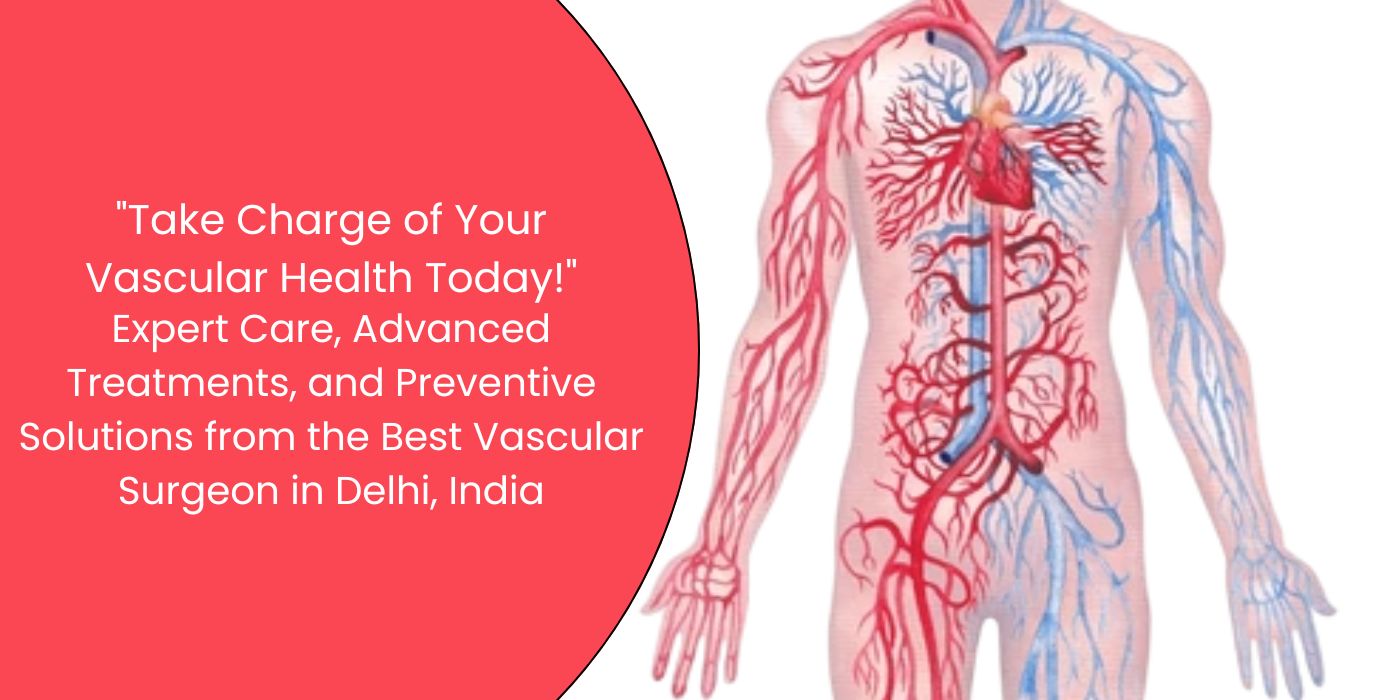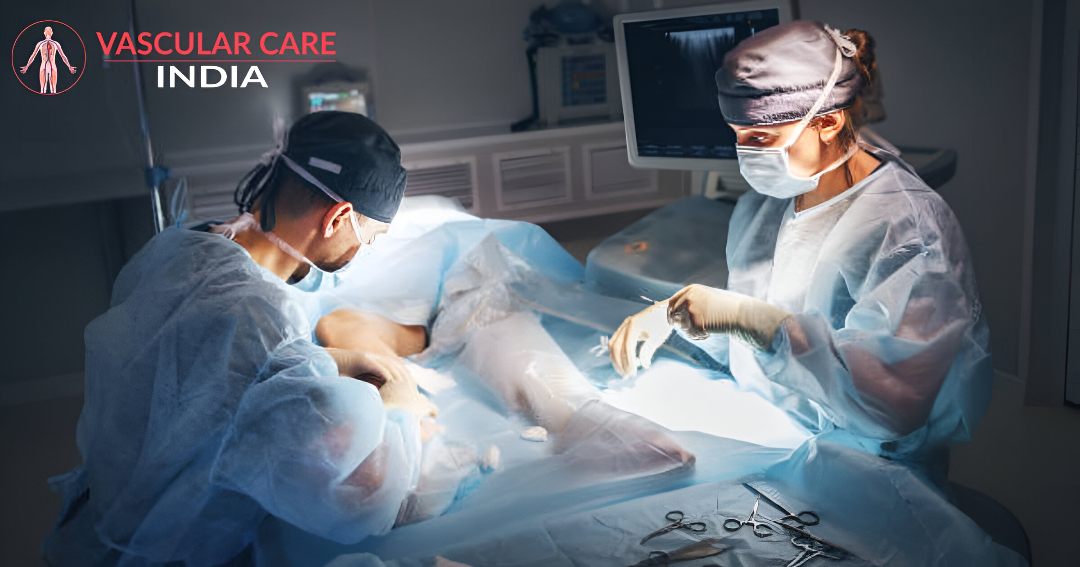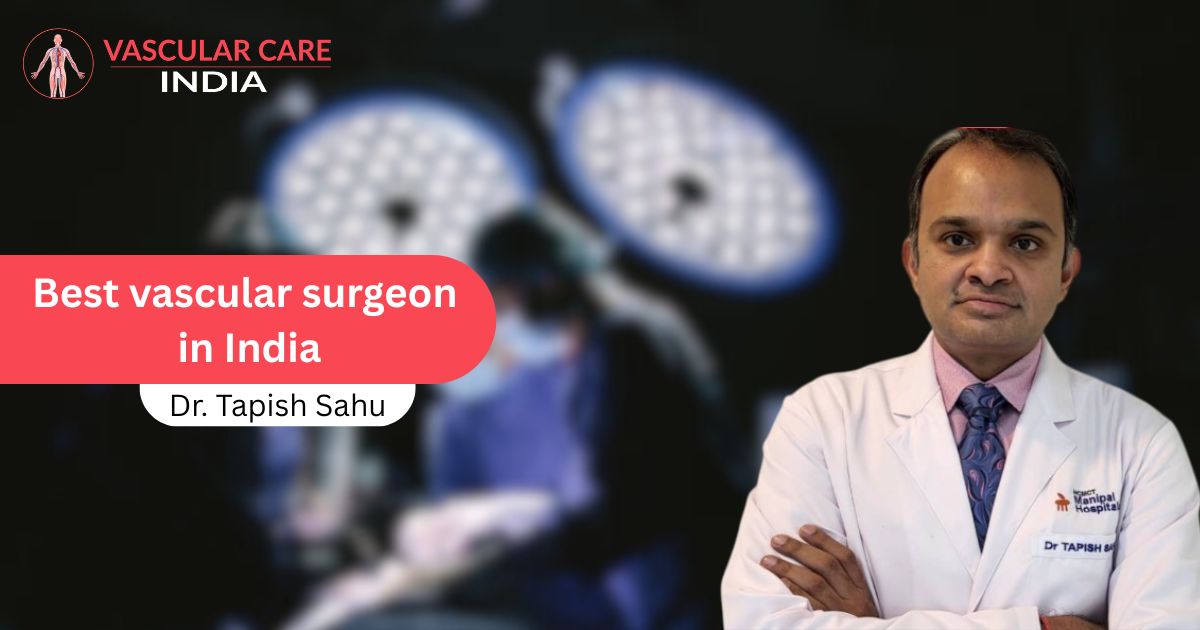Vascular Health in India: Common Problems and Treatments by the Best Vascular Surgeon in Delhi
Introduction to Vascular Health in India
Vascular health plays a crucial role in maintaining overall well-being. Blood vessels, including arteries and veins, act as highways for oxygen and nutrients throughout the body. In India, vascular diseases are on the rise due to rapid lifestyle changes, increasing cases of diabetes, hypertension, and unhealthy eating habits. Addressing vascular health has become a pressing medical need. If you are seeking expert guidance, consulting the Best Vascular Surgeon in Delhi, India can make a significant difference in early diagnosis and treatment.
Importance of Vascular Health for Overall Well-being
Healthy blood circulation ensures that the heart, brain, and other organs function properly. Any disruption in the vascular system can lead to severe complications like strokes, heart attacks, and organ failure. In India, where sedentary lifestyles and stress are increasingly common, vascular diseases are a silent epidemic.
Common Vascular Problems in India
Peripheral Artery Disease (PAD)
PAD occurs when plaque builds up in arteries, restricting blood flow to limbs. Symptoms include leg pain, cramping, and slow-healing wounds. India reports a growing prevalence, especially among diabetics.
Varicose Veins
Varicose veins are swollen, twisted veins often seen in the legs. They cause pain, swelling, and sometimes ulcers. Long hours of standing, pregnancy, and obesity are major contributors.
Deep Vein Thrombosis (DVT)
DVT is a dangerous condition where blood clots form in deep veins, often in the legs. If untreated, clots may travel to the lungs, causing a life-threatening pulmonary embolism.
Stroke and Carotid Artery Disease
Blocked carotid arteries reduce blood flow to the brain, leading to strokes. Stroke cases in India are increasing, particularly in younger populations.
Aneurysms
Aneurysms are abnormal bulges in blood vessels. If they rupture, they can cause sudden death. Early diagnosis and treatment are critical.
Causes and Risk Factors of Vascular Diseases in India
- Lifestyle and Dietary Habits – High consumption of processed foods, low physical activity, and urban stress levels contribute to poor vascular health.
- Genetic Predisposition – Family history of heart or vascular problems increases risk.
- Diabetes and Hypertension – India has one of the highest diabetic populations in the world, significantly increasing vascular disease cases.
- Smoking and Alcohol Consumption – Tobacco and alcohol are major risk factors for vascular damage.
Diagnosis of Vascular Disorders
- Doppler Ultrasound – Non-invasive imaging to check blood flow.
- Angiography – X-ray test that shows blood flow in arteries and veins.
- Blood Tests and Physical Examinations – Detect cholesterol, sugar, and clotting issues.
Treatment Options for Vascular Diseases in India
- Lifestyle Modifications – Balanced diet, weight management, and exercise are first-line treatments.
- Medications and Non-invasive Therapies – Blood thinners, cholesterol-lowering drugs, and compression stockings for varicose veins.
- Surgical Treatments and Endovascular Procedures – Advanced surgeries like angioplasty, stenting, and bypass surgery are widely available in India at affordable costs compared to Western countries. Consulting the Best Vascular Surgeon in Delhi, India ensures you receive the most effective and updated treatment.
Preventive Measures for a Healthy Vascular System
- Eat a fiber-rich, low-fat diet.
- Exercise for at least 30 minutes daily.
- Avoid smoking and limit alcohol.
- Manage stress with yoga and meditation.
- Schedule regular health checkups.
Advancements in Vascular Treatment in India
- Minimally Invasive Surgeries – Faster recovery and less pain.
- Robotic Surgery & AI in Healthcare – Offering precision and better outcomes.
Role of Ayurveda and Alternative Medicine in Vascular Care
Ayurveda suggests herbs like Arjuna and Ashwagandha to improve circulation. Yoga and pranayama also support better vascular health. While modern medicine remains primary, alternative approaches complement treatment.
who treats the vascular diseases
Vascular diseases are typically treated by vascular specialists, including vascular surgeons, interventional cardiologists, and interventional radiologists. These medical professionals are trained to diagnose, manage, and treat conditions that affect the blood vessels — including arteries, veins, and lymphatic systems — throughout the body. Depending on the severity of the disease, treatment may involve lifestyle changes, medication, or surgical procedures such as angioplasty, stenting, or bypass surgery. Vascular surgeons, in particular, play a key role in restoring proper blood flow and preventing complications like stroke, aneurysm, or limb loss. Early diagnosis and care from these specialists are essential for effective management and improved long-term outcomes.
Best Vascular Surgeon in India
When it comes to advanced vascular care, Dr. Tapish Sahu at Vascular Care India is recognized as one of the leading experts in the field. With years of specialized training and extensive experience in treating complex vascular conditions such as Peripheral Artery Disease (PAD), Varicose Veins, Deep Vein Thrombosis (DVT), and Aneurysms, Dr. Sahu has built a reputation for excellence and patient-centric care.
At Vascular Care India, patients receive world-class treatment with access to the latest diagnostic tools, minimally invasive procedures, and evidence-based therapies. The center focuses on delivering comprehensive vascular solutions, from preventive care and lifestyle guidance to advanced surgeries like angioplasty, stenting, and laser treatments for varicose veins.
Dr. Tapish Sahu’s commitment to innovation, compassionate care, and successful outcomes makes him a trusted choice for both domestic and international patients seeking vascular treatment in India.
FAQs on Vascular Health in India
Q1. What are early symptoms of vascular disease?
Leg pain, swelling, numbness, and non-healing wounds.
Q2. Is vascular disease curable?
Not fully curable, but manageable with treatment and lifestyle changes.
Q3. Which foods are good for vascular health?
Leafy greens, whole grains, nuts, and omega-3-rich fish.
Q4. How is varicose vein treated in India?
Options include compression stockings, laser treatment, and surgery.
Q5. Can Ayurveda cure vascular diseases?
It supports health but should complement—not replace—modern medical treatments.
Q6. How often should I get checked for vascular health?
If at high risk, annually; otherwise, every 2–3 years.
Conclusion
Vascular health in India is a growing concern due to lifestyle and genetic factors. With early diagnosis, preventive care, and advanced treatments available in India, most vascular diseases can be managed effectively. By adopting a healthy lifestyle and seeking timely medical help, one can ensure a healthier future. If you are facing vascular concerns, consulting the Best Vascular Surgeon in Delhi, India is the first step toward effective treatment and long-term wellness.




